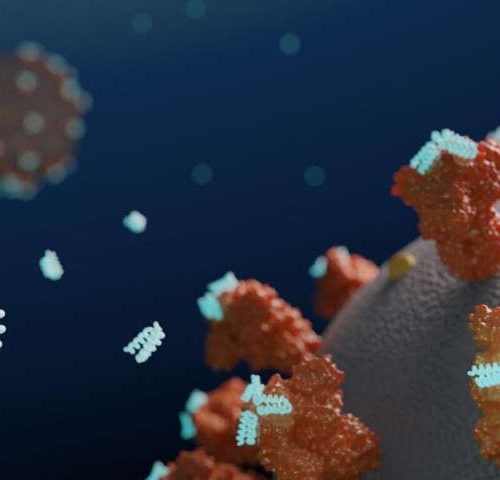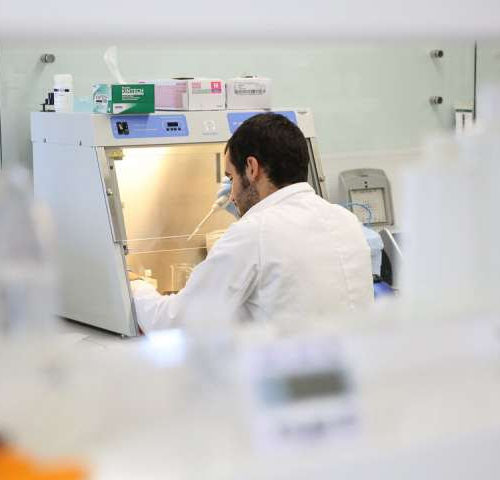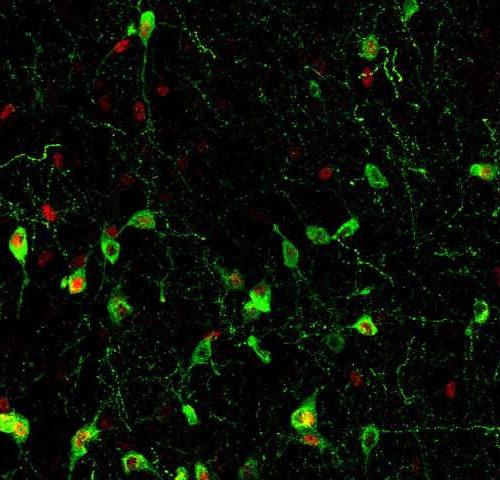JOHNS HOPKINS MEDICINE IMAGE: CANCER CELLS WITH EXCESS CENTROSOMES. DNA IS SHOWN IN BLUE, AND CENTROSOMES ARE SHOWN AS GREEN AND RED. Scientists at Johns Hopkins Medicine and the University of Oxford say they have found a new way to kill some multiplying human breast cancer cells by selectively attacking the core of their cell...
Regulators of metabolism, diabetes identified with new technique
Researchers used a new approach to understand how insulin, the hormone connected to diabetes, changes metabolism. Using lab-grown mouse fat cells, they identified 10 reactions that are regulated by a small number of enzymes. “It was surprising that regulation of only a few key enzymes was sufficient to induce changes in overall insulin-induced glucose metabolism,”...
The T cell responses in COVID-19 recovered individuals
By Dr. Sanchari Sinha Dutta, Ph.D.Sep 8 2020 A recent study demonstrates that functional CD4+ and CD8+ T cells specifically targeting the entire proteome of severe acute respiratory syndrome coronavirus 2 (SARS-CoV-2) remain active in individuals who have recovered from severe or mild coronavirus disease 2019 (COVID-19). Moreover, the magnitude of T cell response is correlated with the...
Keto diet may reduce Alzheimer’s risk by altering gut fungi
Scientists have found associations between fungi living in the gut and mild cognitive impairment, which can lead to Alzheimer’s disease. They suggest that a ketogenic diet could help prevent the disease by creating a more healthful balance of microorganisms in the gut. SA ketogenic diet may help cut the risk of Alzheimer’s by influencing the...
Designed antiviral proteins inhibit SARS-CoV-2 in the lab
by University of Washington An artists’ conception of how small synthetic proteins, built from scratch from computer designs, can have an antiviral effect by binding with Spike proteins on SARS-CoV-2. The binding interferes with the infectivity mechanism of the virus to try to keep it from latching onto and entering cells. Credit: UW Medicine Institute for...
Pro-inflammatory lipids precede type 1 diabetes onset in mouse model and children
by Jeff Hansen, University of Alabama at Birmingham Type 1 diabetes, or T1D, is an autoimmune disease in which the body’s immune cells—led by inflammatory macrophages—attack and destroy the beta cells of the pancreas that produce insulin. Researchers have long tried to unravel the signaling that provokes this attack. One of the less-studied forms of signaling...
Probiotic skin therapy improves eczema in children, study suggests
by NIH/National Institute of Allergy and Infectious Diseases Inner elbow of a child with eczema before Roseomonas mucosa therapy (left) and after four months of treatment (right). An experimental treatment for eczema that aims to modify the skin microbiome safely reduced disease severity and increased quality of life for children as young as 3 years of...
Discovery challenges the foundations of gene therapy
by Children’s Medical Research Institute Marti Cabanes-Creus in the Translational Vectorology lab at Children’s Medical Research Institute. A new publication by scientists from Children’s Medical Research Institute has challenged one of the foundations of the gene therapy field and will help to improve strategies for treating serious genetic disorders of the liver. The paper titled,...
The neurons that connect stress, insomnia, and the immune system
by Cold Spring Harbor Laboratory A section of mouse brain stained to show the ‘insomnia’ (hypocretin/orexin neurons in green). The red inside some cells indicates which neurons were recently active (cFos). Credit: Jeremy Boringer Scientists at Cold Spring Harbor Laboratory (CSHL) and Stanford University have pinpointed the circuit in the brain that is responsible for sleepless...
Researchers report positive results for ReWalk ReStore exosuit in stroke rehabilitation
KESSLER FOUNDATION IMAGE: RESEARCHERS COMPLETED A MULTI-CENTER, SINGLE-ARM TRIAL STUDY OF THE RESTORE FOR GAIT TRAINING OF INDIVIDUALS UNDERGOING POST-STROKE REHABILITATION. East Hanover, NJ. September 9, 2020. A team of U.S. researchers published the results of a multi-center, single-arm trial of the ReWalk ReStore™ for gait training in individuals undergoing post-stroke rehabilitation. They found the...










